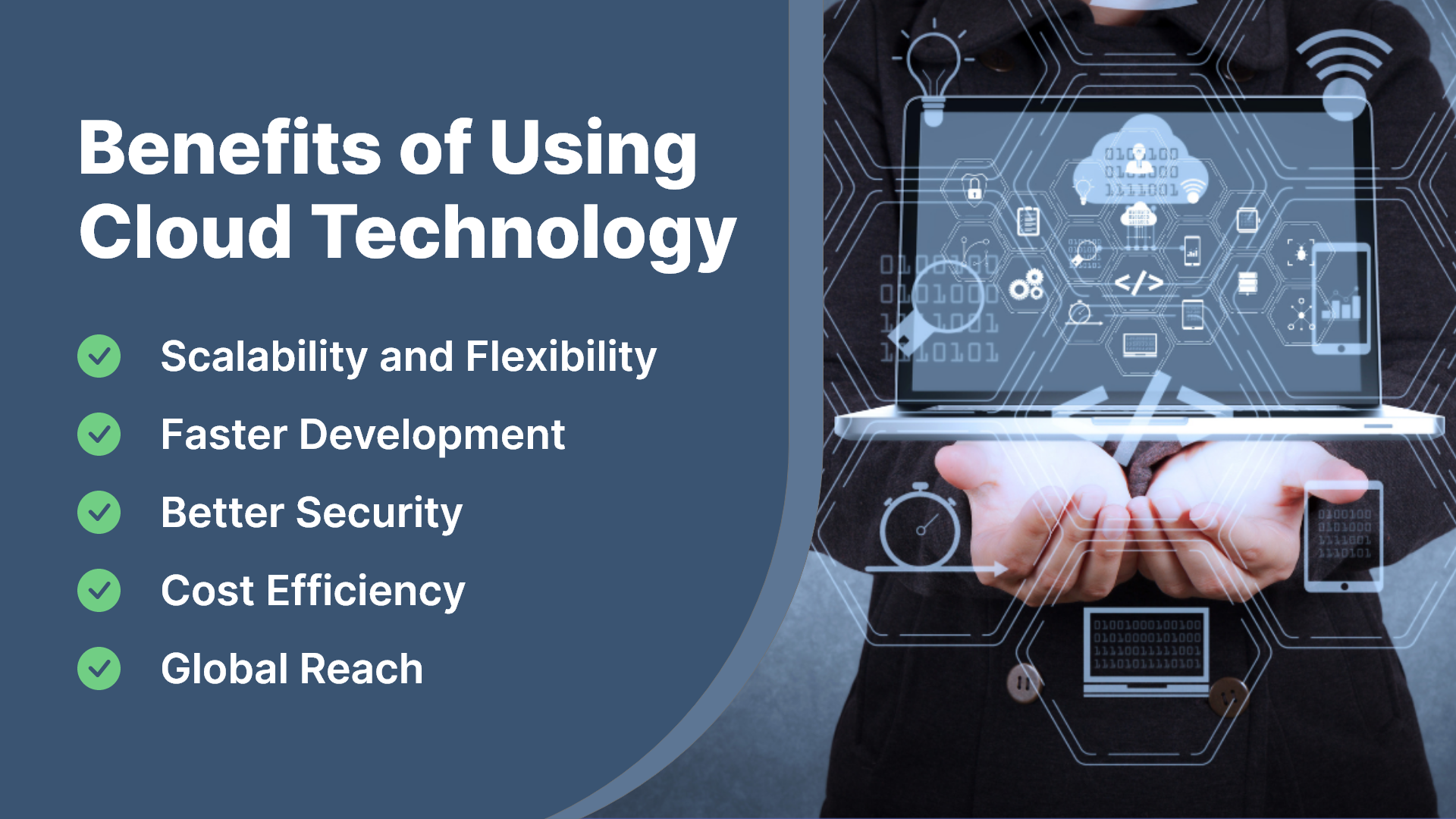Cloud technology is now everywhere. It is changing how businesses are building their web and mobile applications. This is making things faster, simpler, and more efficient. If you are not yet leveraging cloud technology, you are missing out on a big advantage.
In this blog post, we will break down what cloud technology is, why it’s important, and how it is helping your application projects. We will also share some tips and talk about real-world examples.
What is Cloud Technology?
Cloud technology is all about using remote servers to store, manage, and process data; It lets you access resources such as storage, computing power, and software online.
Some popular cloud providers are:
- AWS (Amazon Web Services)
- Microsoft Azure
- Google Cloud
These platforms provide you with the essentials needed to help developers build applications, manage data, and use AI to analyze information.
Why is Cloud Technology Important for Apps?
Modern applications need the flexibility, speed, and reliability of cloud technology. It provides the following to modern apps.
1. Scalability: Adjust your resources based on demand
2. Cost Savings: Pay only for what you use
3. Global Access: Users get the same app experience across the globe
4. Quick Integration: Use pre-built tools to speed up development
It enables developers to focus on building great apps without worrying about managing servers.

Benefits of Using Cloud Technology
1. Scalability and Flexibility
Cloud services also facilitate apps to scale on demand. For example:
- Handle high traffic during sales.
- Manage more players during an app tournament.
2. Faster Development
Teams can work together from anywhere using the cloud tools. They can:
- Test and deploy apps faster.
- Use ready-made tools to speed up coding.
3. Better Security
Leverage cloud providers to leverage your data:
- Encryption (to keep data safe).
- Regular updates (to fix security issues).
- Role-based access (to control who sees what).
4. Cost Efficiency
Leverage cloud computing so that:
- You don’t need to buy expensive hardware.
- You pay only for what you use.
5. Global Reach
Cloud services are available worldwide which suggests that your app can deliver high performance irrespective of your location.
Types of Cloud Services
1.IaaS (Infrastructure as a Service)
Get virtual servers, storage, and networking online at a fraction of the cost.
- Examples: AWS EC2, Microsoft Azure, Virtual Machines.
- Use Case: Hosting websites or backend services.
2.PaaS (Platform as a Service)
Avail tools and frameworks for faster application development.
- Examples: Google App Engine, Heroku.
- Use Case: Rapid app development.
3.SaaS (Software as a Service)
These are ready-to-use apps that don’t need installation. Simply log in and start using it.
- Examples: Slack, Dropbox.
- Use Case: File sharing and team collaboration.
4.BaaS (Backend as a Service)
They are pre-built backends for all types of applications
- Examples: Firebase, AWS Amplify.
- Use Case: Apps with push notifications and authentication.
5. Server-less Computing
With Serverless computing, you can develop apps without managing servers.
- Examples: AWS Lambda, and Google Cloud Functions.
- Use Case: Event-driven apps or microservices.
Real-World Examples of Cloud-Powered Apps
1. E-commerce: Amazon leverages AWS to handle global sales traffic and inventory.
2. Streaming Services: Platforms like Netflix use AWS to streamline shows and recommend content.
3. Healthcare: Healthcare apps store patient records securely and facilitate remote consultations.
Challenges of Cloud Technology
1. Data Privacy: Follow regulations such as GDPR and HIPAA.
2. Downtime Risks: They can disrupt the app hence choose a reliable provider.
3. Cost Management: If you can’t monitor usage, costs increase manifold times.
4. Vendor Lock-In: Switching between cloud providers can be challenging.
Tips for Using Cloud Technology
- Pick the right service: Choose the right services such as IaaS, PaaS, and Saas for your application needs.
- Focus on security: Implement multi-factor authentication tools.
- Plan for downtime: Get backups and recovery solutions.
- Watch costs: Use tools like AWS Cost Explorer to manage expenses.
Conclusion
Cloud technology is a game changer for modern web and mobile applications. It makes them scalable, cost-efficient, and globally accessible.
You should start small with platforms such as AWS, Google Cloud, and Azure as well as implement how cloud technology can elevate app development.
FAQs
Q. What is the best cloud platform for web and mobile apps?
Choosing the best cloud platform depends on your requirements. AWS offers extensive services and scalability; Google Cloud is best for AI and analytics. Azure is best for enterprises that are using Microsoft products.
Q. Can small businesses benefit from cloud technology?
Yes! Cloud technology is cost-effective and scalable which makes it suitable for businesses of all sizes. Many Small businesses can simply start with minimal resources and scale as they grow.
Q. Is cloud technology secure for sensitive data?
Reputable cloud providers provide robust security features such as encryption, access control, and compliance certifications.




